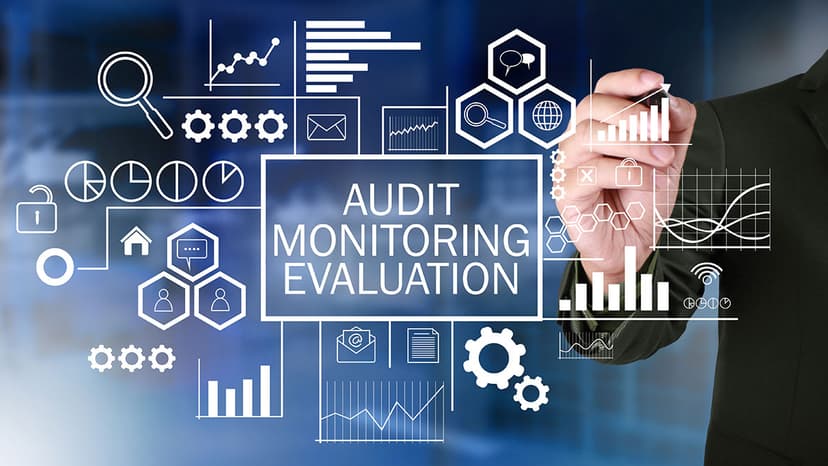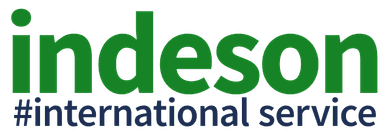Monitoring &Evaluation Services
Evaluate Effectiveness and Optimize Outcomes with our Monitoring & Evaluation Support
Strategic Monitoring and Evaluation (M&E) systems represent critical infrastructure for evidence-based program management, accountability, and continuous improvement in international development and TVET initiatives. Our comprehensive M&E services provide development organizations, government agencies, and educational institutions with robust frameworks for assessing program effectiveness, measuring impact, and optimizing resource allocation through systematic data collection, analysis, and utilization for informed decision-making processes.
Contemporary M&E methodologies serve as the analytical foundation for adaptive program management, enabling stakeholders to track progress against intended outcomes, identify implementation challenges, and adjust strategies based on empirical evidence and stakeholder feedback. Our M&E approach integrates internationally recognized evaluation standards with context-specific indicators, ensuring that assessment systems provide actionable insights while maintaining methodological rigor and comparability with global best practices.
Through systematic application of mixed-methods evaluation approaches, participatory assessment methodologies, and advanced data analytics, we deliver M&E solutions that transform organizational capacity for learning, accountability, and performance optimization. Our systems support complex multi-stakeholder environments, accommodate diverse evaluation purposes, and provide flexible reporting mechanisms that enable evidence-based program management across institutional hierarchies and development partnerships.
Strategic implementation of comprehensive Monitoring and Evaluation systems provides fundamental capabilities for program effectiveness, accountability, and sustainable development impact. In the context of international development programs and TVET initiatives, sophisticated M&E frameworks serve multiple critical functions that directly impact development effectiveness and institutional learning:
Transparency and Stakeholder Accountability
Comprehensive M&E systems enable development organizations to demonstrate transparency about program progress, resource utilization, and outcome achievement to donors, beneficiaries, and oversight bodies. Through systematic documentation and reporting, M&E frameworks build stakeholder trust, enhance institutional credibility, and support sustainable funding relationships while ensuring compliance with donor requirements and international standards.
Evidence-Based Decision-Making and Strategic Management
Advanced M&E platforms provide program managers and institutional leaders with reliable, verifiable data that enables informed decision-making processes across operational, tactical, and strategic levels. Through integration of quantitative metrics and qualitative insights, M&E systems transform program data into actionable intelligence that supports adaptive management, resource optimization, and strategic pivot decisions based on empirical evidence.
Context Analysis and Adaptive Programming
Sophisticated M&E frameworks enable development organizations to acquire deep understanding of operational contexts, stakeholder dynamics, and environmental factors that influence program effectiveness. This contextual intelligence allows programs to identify emerging opportunities, anticipate challenges, and adjust implementation strategies to optimize impact while maintaining alignment with beneficiary needs and development objectives.
Organizational Learning and Capacity Development
Systematic M&E processes promote cultures of reflection, learning, and continuous improvement within development organizations through structured feedback loops, lesson learning protocols, and knowledge management systems. M&E frameworks facilitate institutional memory development, best practice identification, and capacity building that enhances organizational effectiveness and program innovation over time.
Program Design Enhancement and Innovation
Regular M&E analysis enables development organizations to identify effective interventions, unsuccessful approaches, and innovation opportunities that inform future program design and implementation strategies. Through systematic outcome analysis and impact assessment, M&E systems contribute to evidence-based program development that enhances development effectiveness and maximizes resource impact.
Knowledge Management and Development Learning
Comprehensive M&E systems facilitate knowledge capture, analysis, and dissemination that contributes to broader development learning and sector-wide improvement. Through systematic documentation of lessons learned, M&E frameworks support knowledge sharing between organizations, programs, and development partners while contributing to evidence-based policy development and sector innovation.
The absence of comprehensive, well-designed Monitoring and Evaluation frameworks creates systemic challenges that undermine program effectiveness, compromise accountability, and limit development impact:
Limited Program Effectiveness and Impact Measurement
Without robust M&E systems, development programs operate without systematic mechanisms for tracking progress, measuring outcomes, or assessing impact, resulting in inability to demonstrate effectiveness, optimize interventions, or provide evidence of development results to stakeholders and donors. This limits program credibility and future funding opportunities.
Resource Inefficiency and Misallocation
The absence of systematic monitoring creates risks of resource waste, duplicated efforts, and misaligned interventions that reduce program efficiency and limit development impact. Without empirical evidence about intervention effectiveness, programs cannot optimize resource allocation or implement cost-effective strategies that maximize development outcomes.
Accountability Deficits and Stakeholder Confidence
Inadequate M&E systems compromise organizational ability to demonstrate accountability to donors, beneficiaries, and oversight bodies, creating risks of reduced stakeholder confidence, funding cuts, and reputational damage. This limits institutional capacity for partnership development and sustainable resource mobilization.
Missed Learning and Improvement Opportunities
Without systematic evaluation processes, development organizations cannot identify lessons learned, successful approaches, or areas for improvement, resulting in repeated mistakes, missed innovation opportunities, and limited institutional capacity development. This prevents organizational learning and adaptive management.
Strategic Decision-Making Challenges
The absence of reliable M&E data prevents program managers from making informed strategic decisions about program continuation, modification, or termination, resulting in suboptimal program performance and reduced development effectiveness. This compromises adaptive management and strategic planning capabilities.
Compliance and Reporting Difficulties
Inadequate M&E systems create challenges for meeting donor reporting requirements, regulatory compliance, and international standards, resulting in administrative burdens, relationship strain with funding partners, and potential contractual violations that compromise institutional reputation and future opportunities.
Contemporary M&E practice integrates multiple evaluation methodologies including theory-based evaluation, contribution analysis, most significant change, and outcome harvesting to provide comprehensive assessment frameworks that capture both intended and unintended program results. Our methodological approach combines quantitative impact measurement with qualitative outcome analysis, ensuring that evaluation systems provide nuanced understanding of program effectiveness while maintaining statistical rigor and analytical validity.
International evaluation standards including OECD-DAC evaluation criteria, utilization-focused evaluation principles, and participatory evaluation approaches guide our M&E framework development to ensure methodological quality, stakeholder engagement, and utility for decision-making. We integrate gender-responsive evaluation methods, conflict-sensitive monitoring, and cultural responsiveness to ensure that M&E systems promote inclusive development and address diverse stakeholder perspectives.
Technology-enhanced M&E systems leverage mobile data collection, real-time monitoring platforms, and advanced analytics to improve data quality, reduce collection costs, and enhance analytical capabilities. Our digital M&E solutions include automated reporting, dashboard development, and predictive analytics that enable responsive program management while maintaining data security and privacy protection standards essential for development contexts.
M&E Framework Design and Theory of Change Development
We design comprehensive M&E frameworks based on robust theories of change that clearly articulate program logic, assumptions, and causal pathways from activities to outcomes and impact. Our framework development includes indicator selection, data collection planning, and evaluation methodology design that ensures systematic assessment of program effectiveness and development impact.
Data Collection System Development and Implementation
Our data collection services create reliable, efficient systems for gathering quantitative and qualitative information using mobile technology, digital platforms, and participatory methods. We design customized data collection tools, implement quality assurance protocols, and provide training support that ensures high-quality data generation for evidence-based decision-making.
Impact Evaluation and Outcome Assessment
We conduct rigorous impact evaluations using experimental and quasi-experimental designs to measure program effectiveness and attribute outcomes to specific interventions. Our evaluation services include baseline studies, endline assessments, and longitudinal analysis that provide robust evidence about program impact and development effectiveness.
Real-Time Monitoring and Adaptive Management Support
Our real-time monitoring services provide continuous tracking of program progress, early warning systems, and adaptive management support that enables responsive program implementation. We develop dashboard systems, automated alerts, and rapid feedback mechanisms that support evidence-based program adjustments and optimization.
Participatory Evaluation and Stakeholder Engagement
We facilitate participatory evaluation processes that engage beneficiaries, partners, and stakeholders in assessment activities, ensuring that evaluation captures diverse perspectives and promotes ownership of results. Our participatory approaches include community scorecards, focus group discussions, and stakeholder workshops that enhance evaluation validity and utility.
Capacity Building and M&E System Strengthening
Our capacity building services provide comprehensive training, mentoring, and institutional support that strengthens organizational M&E capabilities and promotes evaluation culture. We deliver M&E training programs, develop internal evaluation capacity, and provide ongoing technical assistance that ensures sustainable M&E system operation and effectiveness.
Reporting and Knowledge Management Support
We provide comprehensive reporting services that transform evaluation data into accessible, actionable information for diverse stakeholders including donors, program managers, and beneficiaries. Our reporting includes executive summaries, detailed analytical reports, and knowledge products that facilitate learning and decision-making while meeting accountability requirements.

